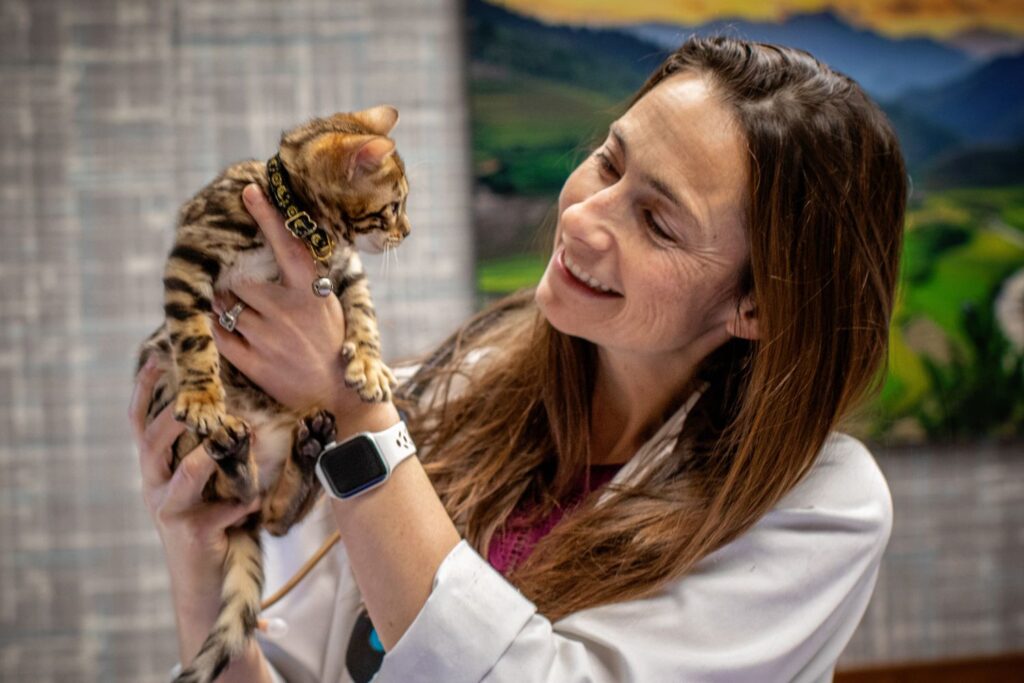Kidney disease is a common health issue for pets, especially as they age. Just like humans, pets rely on their kidneys to filter waste, regulate fluids, and maintain essential chemical balances in their bodies. Identifying this condition early can make a significant difference in your pet’s quality of life and treatment outcomes.
Here, we’ll cover what kidney disease is, its early signs, and how you can help your furry friend stay healthy.
What Is Kidney Disease?
Kidney disease occurs when the kidneys no longer function properly. This can be due to acute damage (acute kidney injury) or a chronic, progressive decline in kidney function (chronic kidney disease).
Acute kidney injury may result from poisoning, infection, or trauma.
Chronic kidney disease (CKD) is more common in aging pets and typically develops over time.
- Both types can affect dogs and cats, but older cats are particularly prone to CKD.
Early Signs to Watch For
Pets often mask symptoms of illness, so it’s essential to know the subtle signs of kidney disease:
- Increased Thirst and Urination One of the most noticeable signs is your pet drinking more water and urinating more frequently. You may also see accidents in the house or outside the litter box.
- Decreased Appetite Kidney issues can make your pet feel nauseous, leading to a lack of interest in food.
- Weight Loss Gradual weight loss, particularly in older pets, can be a red flag.
- Lethargy Pets with kidney disease often seem tired or less interested in play and activities.
- Vomiting and Diarrhea Upset stomachs are common as toxins build up in the bloodstream.
- Bad Breath A “uremic” smell, similar to ammonia or urine, is often a sign of kidney dysfunction.
- Poor Coat Condition Dull or unkempt fur, especially in cats, can be a sign of underlying health issues, including kidney disease.
- Mouth Ulcers In advanced cases, you may notice sores in your pet’s mouth caused by toxin buildup.
What Should You Do if You Notice These Signs?
If you see any of these symptoms, schedule an appointment with your veterinarian right away. Early diagnosis allows for better management and improved outcomes.
Diagnosing Kidney Disease
Your veterinarian will perform a combination of tests to diagnose kidney disease, including:
- Bloodwork to measure kidney function and detect abnormalities.
- Urinalysis to check for protein levels, infection, or concentrated urine.
- Imaging like ultrasounds or X-rays to evaluate kidney structure.
Treatment Options
While kidney disease isn’t always curable, it can often be managed effectively. Treatment depends on the severity and type but may include:
- A special diet to reduce kidney strain.
- Medications to control symptoms like high blood pressure or nausea.
- Fluid therapy to help flush toxins and prevent dehydration.
- Regular monitoring to adjust treatment plans as needed.
Preventive Care Tips
You can’t always prevent it, but you can take steps to support your pet’s kidney health:
- Schedule regular veterinary check ups—especially for senior pets.
- Provide access to fresh, clean water to keep your pet hydrated.
- Feed a balanced, high-quality diet tailored to your pet’s needs.
- Monitor your pet for changes in behavior, appetite, or habits.
Conclusion
Recognizing the early signs of kidney disease can save your pet’s life. With prompt veterinary care and ongoing management, many pets with this condition can lead happy, comfortable lives.
At 1st Pet Veterinary Centers, we’re here to support you and your pet every step of the way. If you have concerns about your pet’s kidney health or want to schedule a checkup, don’t hesitate to Contact Us.
Your pet’s health is our top priority.
Schedule an appointment today to discuss your pet’s kidney health and overall well-being!

